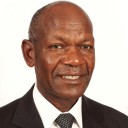There is good reason to be proud and optimistic since the UN member countries adopted the Sustainable Development Goals (SDGs) this September. The SDGs are the result of tough political negotiations and unprecedented civil society consultations, and for the next 15 years will set the framework and benchmarks for ending extreme poverty and securing a more sustainable future.
But as with all declarations – the real SDG work starts when the world leaders return from New York and are expected to translate words into action. This time we must not repeat one of the biggest shortcomings of the Millennium Development Goals: After they were signed off, it took several years to realign national priorities towards the MDGs. This time must be different and we must use all tools at hand (and fortunately there are better ones than 15 years ago) to hold our governments, our leaders and ourselves accountable.
A circle of decision-makers from business, government and civil society from countries like China, Russia, Ghana, Tanzania, Turkey, Germany, Poland, Nigeria, Egypt and France, who had gathered in September at the 5th BMW Foundation Global Table in Tanzania, are proposing the following process to be started on the national level immediately after September 25:
To ensure a transparent accountability process, each signatory country should establish a high-level oversight body comprised of appointed representatives from government, business and civil society, which is expected to monitor and report on progress on both the national and local level.
Furthermore, it is critical to inform parliamentarians and other legislators to raise their awareness of the SDGs in order to mobilize political will for their implementation. As elected representatives, they are in a unique position to put pressure on national governments to align existing laws, policies, regulations and reporting rules with SDGs and to mainstream SDGs in the national development strategies and plans.
In order to bridge the gap between policy and implementation, local communities should be better informed regarding international and national political commitments and ways to engage and exert pressure on decision-makers that are expected to translate the abstract vision of the SDGs into concrete, measurable actions at the local level. Mobilizing the support of moral and religious leaders could be key in gaining broader public consent for the SDG vision.
As the SDGs are principally to benefit future generations, the youth should have their say on the matter. In order to encourage young people to participate within the broader debate, it is necessary to include the concept of the SDGs in national school curricula and to create opportunities for regular, active engagement with decision-makers.
The advancement of information technology – especially in the emerging economies – unlocks a myriad new opportunities. Social media can be used to share and spread success stories, build communities and create ownership. Around the globe new apps are already used to report and track negative environmental impact of certain industries and hold both local government and corporate officials accountable. So why not develop a variant of “Yelp” to encourage the crowd-sourced reviews of local companies’ or governments’ efforts towards sustainable development?
Private business involvement is crucial to achieve the new development goals. Even though any voluntary engagement within the private sector is welcome and should be acknowledged accordingly, this is not enough to ensure compliance with the SDGs. Companies should ideally be accountable to the oversight body, committing to previously ratified score cards (regarding waste, use of excess produce, social rights, etc.) and to quantifying and reporting their actions and outcomes towards implementation of the SDGs, so that progress can be openly discussed and evaluated by the public.
Local communities and countries which have achieved extraordinary progress should be rewarded a status of a “front-runner club” and given special recognition, setting incentives for other countries to catch up and preventing discouragement. The United Nations and other international institutions should support efforts to recognize high levels of commitment, action and impact.
The universal character of all these recommendations is only one side of the coin. What should not be underestimated is the critical importance of comprehending and accommodating specific local needs, as well as geographical and societal dynamics within the long-term SDG process. Only then can national and local actors adapt and prioritize approaches towards a more sustainable world.
Michael Schaefer is chairman of the Board, BMW Foundation, Berlin and Joseph Semboja is chief Executive Officer, Uongozi Institute, Daressalam.







Comments (0)